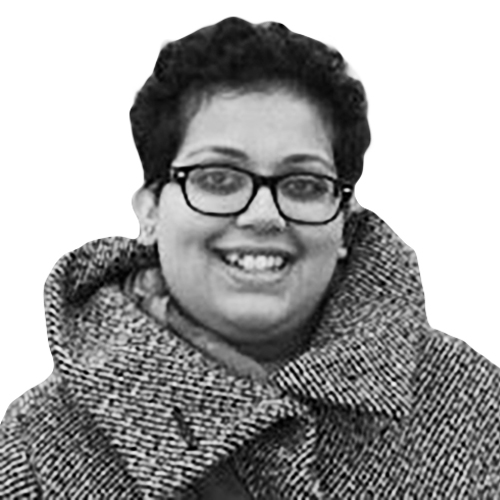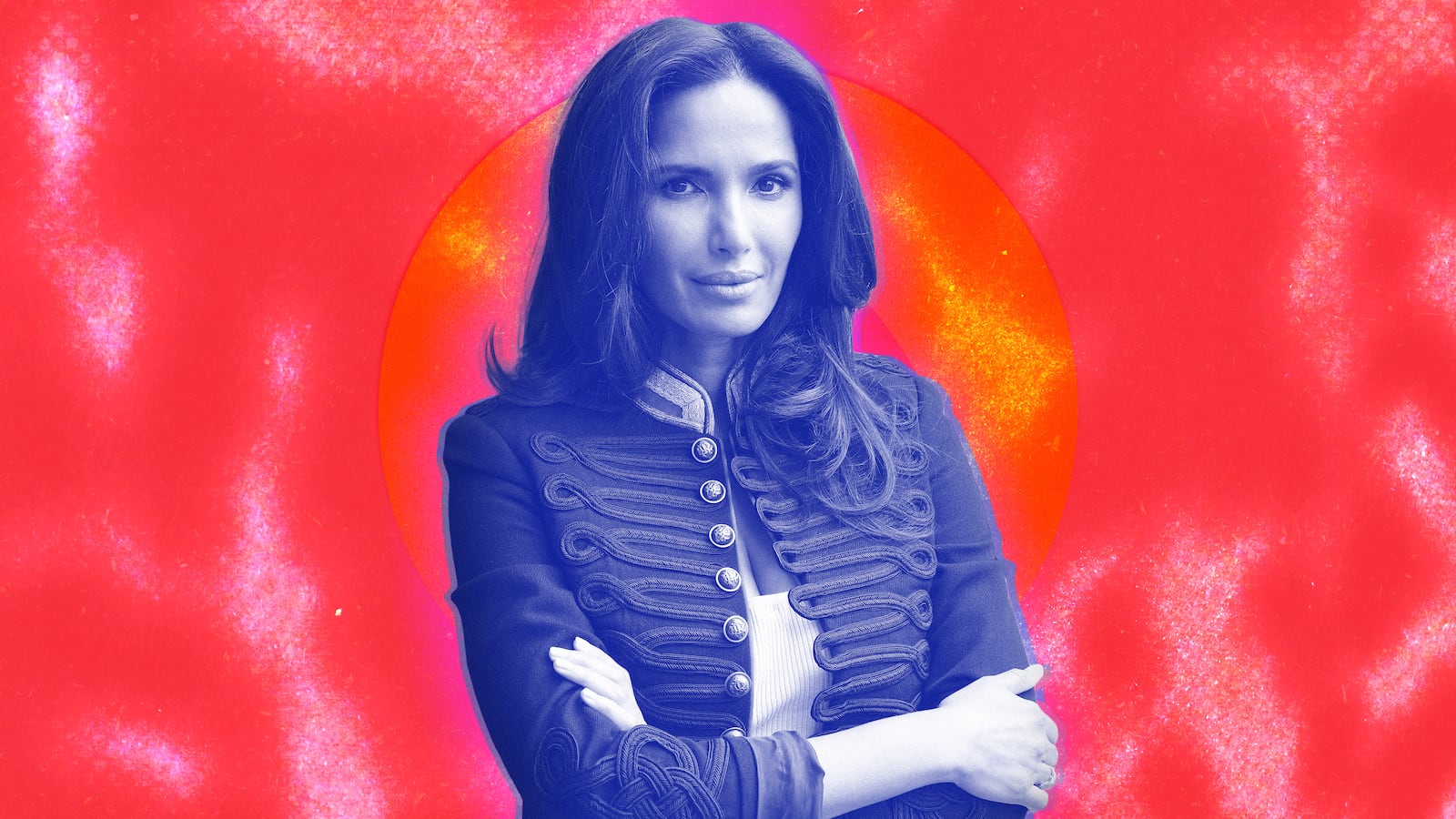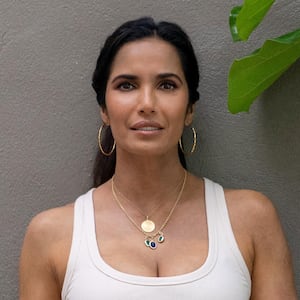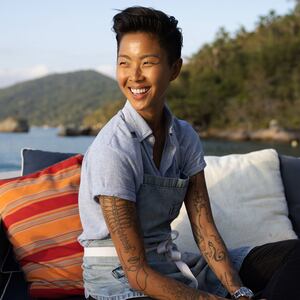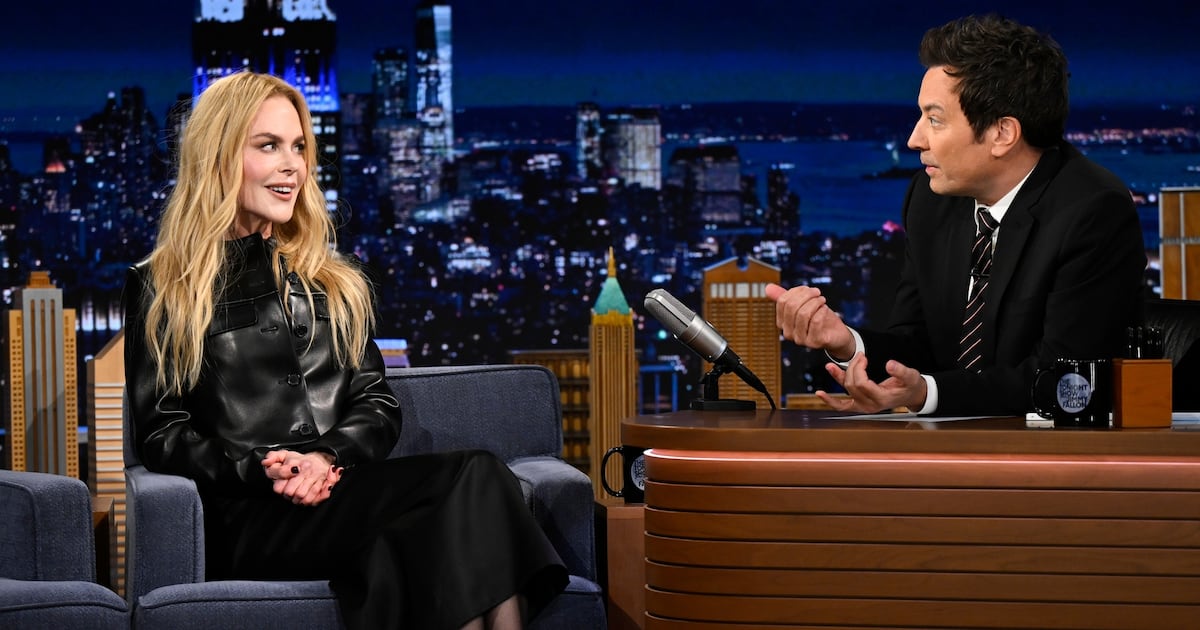On Friday, supermodel, author, and host of Top Chef and Taste the Nation Padma Lakshmi revealed on Instagram that she has “made the difficult decision” to leave Bravo’s award-winning cooking competition series, after 19 seasons. “I am extremely proud to have been part of building such a successful show and of the impact it has had on the worlds of television and food,” the statement read, in part.
Presiding over the show turned Lakshmi into a household name, and she has since become a New York Times bestselling author and prominent activist. The second season of Taste the Nation, her food-centric road trip show on Hulu, also premiered in early May. As she travels across America to visit immigrant communities and taste their food, Lakshmi has unearthed harrowing, but often empowering, tales of survival, not to mention mouth-watering culinary traditions. Season 2 features, among others, the Afghan refugee community in D.C., a melting pot of cultures in Appalachia, Cambodians in New England, Greeks in Florida, Nigerians in Houston, and Filipinos in San Francisco.
Weeks ahead of announcing that she was leaving Top Chef, Lakshmi and I spoke about this pivotal moment in her career. Our wide-ranging conversation included discussions of her personal loss that informed this season of Taste the Nation, experience with adversity while working on the Bravo hit, and evolving relationship with beauty. (Through a representative, Lakshmi offered no further comment on her Top Chef departure.)
This interview has been edited and condensed for clarity.
Something I’ve always admired about you is your poker face on Top Chef—so I got really emotional watching you weep during your visit to the Cambodian community in Lowell, MA, during episode 8 of this season. What was filming that trip like?
It was an intense week. We spent a week in each community, and I was listening to all these really painful, very traumatic stories about mothers walking through the jungle, and having to leave their dead child behind. To hear and internalize and absorb all those stories is very, very difficult.
The other layer that you don’t really hear about [in the episode] is that my grandmother, who I’m very close to, died about a week before we started filming. She really raised me along with my mother. It’s due to her that I know anything about food because she loved cooking. When we’re in that Buddhist temple scene, I just broke down. It was the first time I’d heard chanting in Sanskrit since I cremated my grandmother. I was surrounded by all these old women who didn’t speak much English; I certainly don’t speak a word of Khmer. But we understood each other very deeply, because they all make food and take it to honor their dead.

Padma travels to Lowell, Massachusetts and sees how Cambodian immigrants and their cooking have become the backbone of the New England town on Hulu’s Taste The Nation.
Craig Blankenhorn/HuluI can’t imagine continuing to work in the face of a loss of that magnitude.
What you don’t see is that finally, my DP Hunter Hansen, who helped me design the show and is very responsible for the visual language of the whole series, put his camera down, came and pulled me off of the floor and just held me. I just stood there and my whole body was just convulsing for a good 10 to 15 minutes. I’d just pushed it down.
It’s striking how everyone’s story, of cooking when they came to America, is often just about cooking as a method of survival. “We cooked because that’s how we could feed our kids. That’s how we could start a business. That’s how we could have shelter.”
It’s also a means of [preserving] one’s heritage. It’s a method of passing down your family history and your cultural heritage to children, who are growing up in another culture than you did. My child is biracial. But she’s mostly American, just by virtue of being brought up in the United States. She’s been to India at least six times, a couple of times by herself. She sings in Sanskrit, because she’s had Carnatic vocal classes for seven of her 13 years on this Earth, but she’s, for all intents and purposes, an American kid.

Padma dives into Los Angeles’ Koreatown on Taste The Nation.
Michael Desmond/HuluI was amused by the similarities we see between the Nigerian moms, Korean moms, and Jewish moms on the show. All of them guilt-trip and criticize their kids. Ingredients overlap too: turmeric, ginger, galangal. Did those commonalities intrigue you?
I learned so much on the show, both in pre-production, when we’re first finding our stories, and developing a thesis for each community. There are so many similarities. People don’t realize how close Indian food is to Mexican food. When you look at it, it makes sense, because the climates are the same. You have mangoes, tamarind, cumin, chiles, tomatoes, cilantro. The Mexican food that I was exposed to, before I really started traveling more to southern Mexico and through the Yucatan Peninsula, is very similar to Indian food. And I like that.
Speaking of Indian food, I was extremely excited during the recent thali episode of Top Chef, which aired just a few weeks ago. I’ve never heard someone talk about the principles of ayurvedic food on an American television show. I’m so glad you explained the difference between bitter and astringent, because they’re not the same.
It’s hard to explain. We don’t have as many words for those things [in English] as we do in Tamil culture. There’s so many words that mean almost the same thing, but not the same thing. That’s a loss sometimes, because English is much more not only crude, but it’s a much less nuanced language. I really prefer Italian, even, to English, because it does have a lot of those subtleties and nuances that I find easier to explain an emotion or a taste of something.
What did you think of the chefs’ performance, when it came to cooking things like dal, chutney, and rice?
It’s very hard to drop that on them. I felt more sympathetic than I usually do. That’s not a thing that anyone teaches in culinary school—it’s not as well known as it should be. I was surprised by the struggle they had with dal, frankly. There are 1.4 billion Indians in the world. If you’re going to compete on a world stage, and you’re going to London, chances are you’re going to have Indian food, especially with the Indian host. She happens to be one of the producers of the show. [laughs] So you should find out about dal.

(L-R) Asma Khan, Padma Lakshmi, and Gabriel Rodriguez.
BravoWhat you don’t see in that episode is that, after the chefs finished presenting their dishes to the judges, I had some downtime. We have a culinary department backstage and have a little stove there. So I quickly made them dal. I had all the contestants taste my dal and said it shouldn’t be spicy. It should be something that’s flavorful, like a staple—not flavorless, like plain rice, but seasoned properly.
I saw this theme repeated a little bit on Taste the Nation—how people fear flavorful food, because they think it’s spicy. They assume it’ll blow their palate out and cause steam to shoot out of their ears. But really, it’s just about creating layers. Do you think that people have become more understanding of this difference, at least among the culinary-curious American public?
I think so, because they’re more exposed to immigrant communities and different foods from around the world. Most of the food that we ate in this country, because of who got to settle here, and who the dominant culture is made by and for, [was established by] European descendants from Germany and Scotland and England. Then the Italians come, but it’s not until the last few decades, where you have Thais coming over, Vietnamese coming over due to the Vietnam War, [that things have become more diverse]. That’s how the Cambodians got here.
I didn’t know a lot about Cambodian food. I’ve never been to Cambodia. So I learned how it was very similar to Thai food, because obviously it’s close by, but it’s much different. It’s not as spicy. It’s funky, because they use a lot of fermented fish and fish paste. It’s very aromatic, because, as you pointed out, they use a lot of the same things, like finger root or galangal. But it’s not as spicy as Thai food at all, which is actually great. Some people don’t have a high spice tolerance, so it’s good for them.
You have a legendary spice tolerance, as evidenced by your appearance on Hot Ones, which fans of the show call an all-time best. You just sailed through it.
I also did that show six years ago and had a bigger spice tolerance then. I take pretty good care of myself, but my stomach does get quite a bit of abuse just from my work. I still love spicy food, but I get heartburn now. The Nigerian episode of Taste the Nation was challenging for me because that food is very spicy. They are not messing around, especially with the suya spice. In Indian food, you have spicy things, but you also have a lot of food that’s not very hot.
Suya spice isn’t served with raita.
Exactly, exactly. They eat it all—they just like it.
In this season of Taste the Nation, you speak in great detail about colonialism, imperialism, and racism. Do you believe justice and equality are incompatible with capitalism? The slave trade, the selling and buying of the bombs that rained down on Cambodia and Vietnam, and the colonization of Puerto Rico—all discussed on the show—have similar themes and roots.
I do believe that capitalism can be compatible with justice. I believe that capitalism is a product of imperialism, because the very idea is that you are superior enough to someone else, to subjugate them, and to have that be, quote-unquote, the moral will of God. I think that you can have a form of capitalism that rewards hard work, ingenuity, and creativity, and yet does it in an equitable way.
It’s okay if one business makes more money than the other business, because that business is full of people who work harder and are more creative and talented. But even in that business, where people are making more money, there shouldn’t be such a disparity between the board of directors, or the CEO and the workers. It’s real. I fight in my own position for equal footing every day.

Padma with a Cambodian dish in Lowell, Massachusetts.
Craig Blankenhorn/HuluThat’s surprising. You’re a supermodel, an author, you’ve won Emmys—
I haven’t. Top Chef has won Emmys. I wasn’t a producer when the show won [in 2010]. They made me hold [the award] onstage when the show won and took it away.
Wow. It’s true that there are very few prominent brown women in the food world: You, Sohla El-Waylly, and Priya Krishna are among the only ones. That lack of representation feels especially important to call out right now, as writers across the industry are on strike right now for better, more inclusive contracts.
I’ve made it my mission to mentor two or three women, one of whom is Priya Krishna, whom I’m very proud of, because no one did that for me—just practical nuts-and-bolts information, like getting an entertainment lawyer. Do not think you are equipped to lobby for yourself or even know what to ask for. I don’t want the next generation of writers and actors or any creative person to have it as hard as I did. Because everybody benefits [from diversity]. The stories are more interesting. I don’t want to hear the same story every day for years on end.
As a person who has a limited grasp of makeup, I prefer watching videos on YouTube rather than doing it myself, so I was happy to see your makeup routine video for Vogue. I don’t see many brown faces get that opportunity or exposure.
I’m the only fool who actually took Vogue literally, because I went there completely bare-faced. The light that they used in that hotel was so blue. I have dark circles—I don’t need help having those dark circles. But they looked worse than they do most of the time, depending on if I’ve gotten sleep or not. So when I watched it, I was like, “Man, they did me dirty!” [laughs]
But it’s OK. I’ve actually gotten a lot of nice feedback from Indian women and Sri Lankan women, who were like, “Thank God, you’re the only one who has actually talked about this.”

Padma’s spice meter is put to the test by comedian Yvonne Orji when she travels to Houston, home to the largest Nigerian population in the US, where she gets an insider experience of Nigerian food and pride.
Rebecca Brenneman/HuluI’m glad you phrased it that way, because that brings me to my next question. In the Vogue video, you said you used to have to carry around your own foundation, which is a common experience for women of color. How has your perception of both beauty in general and your own beauty changed over time?
My perception of what is beautiful in general has changed. My perception of my own appearance has also changed very, very drastically. I still carry two bottles of different Armani foundations. I still carry three different types of concealer, depending on what I need. I’ve learned the hard way to do that. I accept myself much more now. I think I look great now. I know objectively that I looked better 20 years ago, because I hadn’t had a kid, I didn’t eat for a living, I had more time in my schedule to take care of myself, and I hadn’t had the 20 years of wear and tear. I should have felt better about my body when it looked better. But I appreciate myself now, because it gave me the first career I had in my life.
I know that it is no accomplishment of mine that I look the way I do. It’s just due to the cocktail of genetics that my parents put together in me. Now, of course, I take care of myself. I work out one or two hours a day, five or six days a week. I have regular facials. I make sure I take my makeup off. I never took my makeup off before—like sometimes, [I’d wear] eyelashes for two or three days. But I do think that as I’ve gotten older, I’ve been able to put it in perspective. I think the reason I’m less insecure is because I have also developed other parts of me that have given me the confidence not to be so focused on my physical appearance, if that makes sense. I know that I’m much more interesting now than I was when I was 20.
It sounds like you’re saying it’s difficult to value your appearance when you’re a supermodel.
When you go and pound the pavement every day on modeling castings, and you sometimes see a line of 200 girls there, and you’re sitting there with your modeling book, and the guy is barely looking at the pictures while he’s eating his lunch, and you just stood there in the sun for an hour—it’s demoralizing. And it’s really hard not to take it personally, even though it has nothing to do with you. The brand wants what they feel is in the zeitgeist, who they think their market is.
When I modeled, [the fashion industry] was not inclusive at all. You knew, as somebody who’s brown or Black, that you were never or very rarely going to get as many covers as the white women or girls. You just accepted it. You just drank that Kool-Aid so obediently that you didn’t even question it. You felt lucky for the work you got. You’re surrounded by everyone else, who is also very thin and very beautiful, so it’s hard not to magnify every little flaw you have. Now I know that the success I’ve gotten has to do with much more than what I look like.
